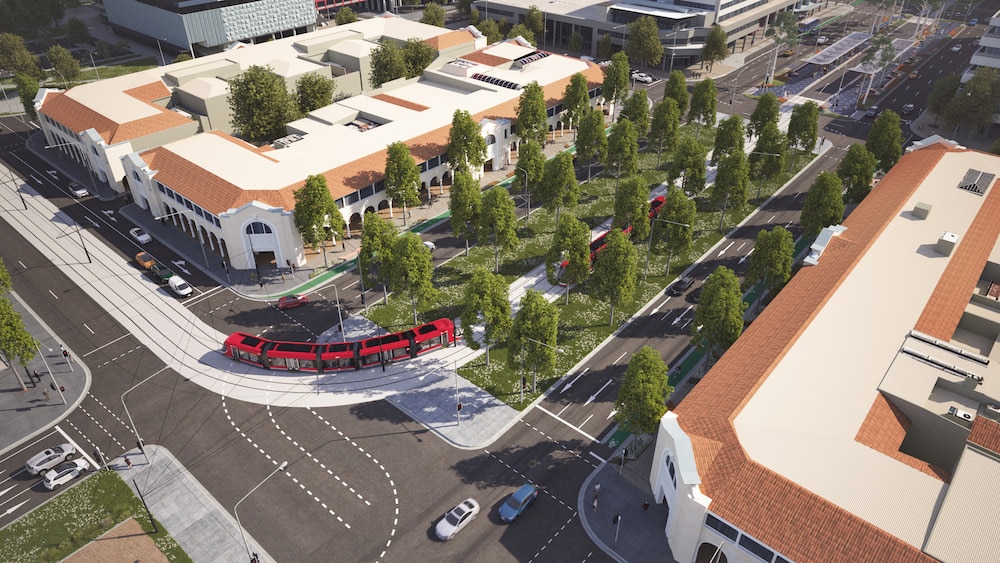Today’s announcement that light rail construction works would cause four years of traffic congestion and unusable roads has dismayed some commentators.
“Canberrans have been misled,” said Liberal MLA Mark Parton, Shadow Minister for Transport. “Labor and the Greens have been selling this project to us for a decade. But today was the first day that we were told that we’re going to be in a traffic gridlock four or five years day and night.
“They’ve been working on this for at least 10 years, and today is the day they tell Canberrans they’re going to have to rejig their lives for four years.”
He was concerned the government had not said when the work on the light rail started or when it finished.
“That’s for one of two reasons. Either the government doesn’t know, or they do know and they’ve decided that particular aspect of this story is unpalatable to tell us at this stage.”
Graham Catt, president of the Canberra Business Chamber, was concerned about the construction works’ effect on Civic.
“The works will undoubtedly have a major impact on trade, customers, and employees,” he predicted.
Commercial property owners’ values and returns could decrease. Those who recently signed a lease may find themselves struggling to pay the rent.
Some small businesses may have no choice but to relocate, either temporarily or permanently, in order to keep trading. For some, this may not be an option, and a long period of disruption like this may well lead to closure, Mr Catt said.
Mr Parton feared that businesses would close in the city because of the disruption, and criticised the ACT Government for not supporting them.
“Businesses in the city who’ve gone through COVID and faced an enormous stress will face enormous stress from this,” he said. “[Transport minister Chris Steel] was asked on ABC Radio [this morning] about compensation. And he very clearly said: there will be no compensation. He basically said that they would help businesses by telling them what was going on.
“Now, I’m not sure that’s going to help them. It’s like the death row prisoner going to face the firing squad, and they’re saying: ‘Look, don’t worry, we’re going to tell you how many shooters there are, and what calibre the bullets are. So what have you got to complain about?’”
Several Gungahlin businesses closed while Stage 1 of light rail was built, the ABC reported in 2019.
Mr Steel suggested that to avoid traffic, Canberrans should rethink their routine, commuting earlier or later, or taking different routes into Civic and the Parliamentary Triangle.
Mr Parton scorned Mr Steel’s suggestion Canberrans could travel to work earlier.
“The reality is that thousands of Canberrans don’t have the capacity to do that. They can’t do it.”
Or that peak hour traffic could use Parkes Way rather than Commonwealth Avenue.
“Have you seen Parkes Way at 8.15 in the morning? There is no way that you can channel thousands more cars there.”
Or that Canberrans should avoid Civic.
“Well, if you work in the city, that’s where you’re going.”
Mr Catt said that some larger organisations would be able to stagger working hours and use other strategies to adapt. “Hybrid models combining working from the office with working remotely are far more common now than they were a year ago, and this will assist in managing the impact.”
But this was far more difficult for small businesses to achieve.
“For those who provide goods and services in the affected areas, changes to working hours by large organisations will have direct impact on customer numbers and also on costs. Keeping a café open later to look after office workers who now work later can mean additional operating costs such as penalty rates.”
The ACT Government said it would keep business leaders informed so they could make decisions ahead of time.
“Planning is critical for businesses, and effective planning requires information,” Mr Catt agreed. “Good communication, and an open dialogue with all types and sizes of impacted businesses is going to be absolutely vital over the months and years ahead.”
For more news:



